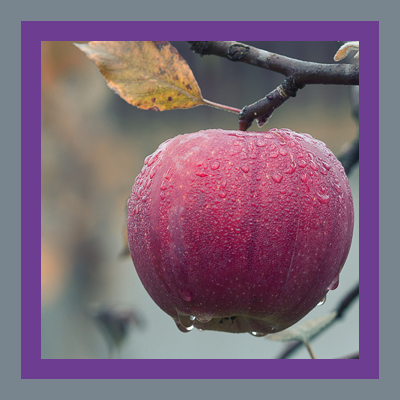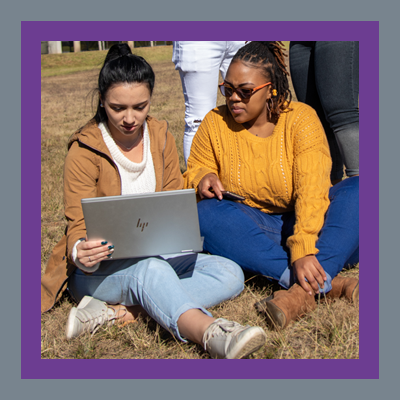Edu-Lead

Educational Leadership is one of the core factors of the South African education system to help improve schools in South Africa. This research niche area makes it their priority to do research in order to identify what the exact role of leadership in a school is on the quality of education in that school or organisation. The research incorporates all levels of educations from schools to higher education but mainly focuses on schools in a lower socio-economic context and how to support these schools. Leadership is defined as every person playing a role from the classroom teachers to the principal as well as departmental official at different levels in the departments of education as well as academics in higher education, for example, subject leaders, deans or any position linked to leadership.
Director: Prof Jan Heystek
Food Security and Safety in the North-West Province (FSS)

In Africa, food production continues to grow more slowly than the population, and in contrast to every other region of the world, food production per capita has declined since the 1970s. A third of all people living in sub-Saharan Africa face severe food insecurity. They do not have enough money, or the resources to grow food, and regularly go for more than a day without food.
The North-West University’ Food Security and Safety (FSS) niche area is doing its part to alleviate this world-wide phenomenon, by offering many types of academic research disciplines within Agriculture, Biological Sciences and Environmental Sciences.
We have set our aim to doing fundamental and applied research as well as developing innovative methods to promote food security and food safety. The way we do this is by moving (and keeping) our research focused on the goal of sustainable access to safe and nutritious food. Our research entity spans across regional, national and international levels.
Working closely together with the South African Department of Agriculture, Forestry and Fisheries (DAFF) and the Department of Rural Development (DRD), we have been able to identify the availability of, access to, and using of food as the three key issues that have to do with food security and safety.
The entire world is being faced by climate change, and so FSS also works with how agricultural systems (production, marketing, processing and value-adding, technology, consumption) have an effect on household food security. Our entity is also involved in research about rhizobacteria which improves plant health and/or growth and/or yield, as bio-fertilizers. Our research deals with both the technical and socio-economic dynamics of food security and creating, as well as improving, strategies for the sustainable production of local crop and livestock systems. This deals specifically with rural households and particularly the food safety of indigenous foods in these homes.
Director: Prof Olubukola Oluranti Babalola
Global Innovative Focussed Talent (GIFT)

GIFT is an acronym for Global Innovative Forefront Talent and a world-class research entity that delivers high-quality research, scholarships, and innovative solutions to develop and expand the gift of talent in people from various workplaces and community settings. GIFT identifies, develops and contributes to all talent management practices by empowering students, people in communities and companies to educate and transfer their skills and knowledge to establish human resources, encourage change and a sense of purpose in life and business - creating a ripple effect of talent development throughout South Africa.
Director: Prof Anna Pelser (acting)
Indigenous Language Media in Africa (ILMA)

ILMA is an acronym for Indigenous Language Media in Africa and the only one of its kind in the whole of Africa. We are still a young research entity (started in 2016) and specialise in the use of African languages in the media (broadcast, print or digital) and how it is being used to communicate and address diverse issues. We focus on issues concerning the contrast between public and private financing of the media, the media and identity, the media and politics, the internet, media and democracy, media and development as well as African traditional communication/media systems and their applications.
Director: Prof Abiodun Salawu (acting)
Medicine Usage in South Africa (MUSA)

The research entity Medicine Usage in South Africa (MUSA) has the unique research purpose of understanding those factors that influence appropriate medicine usage by patients in the southern African healthcare context. MUSA was established as a niche area in 2008 and the medical research that the entity is doing remains highly relevant in the context of the South African healthcare system, which is facing serious challenges on several fronts – medicine usage included.
Director: Prof Martie Lubbe
Multilingual Speech Technologies (MuST)

Multilingual Speech Technologies (MuST) is a research niche area affiliated with the Faculty of Engineering. Our work is focused on the study of machine learning and statistical patterns recognition, with a strong track record of applying these in speech processing applications. We have a specific interest in deep learning techniques and their application in various domains, including speech and language processing.
Director: Prof Marelie Davel
Musical Arts in South Africa: Resources and Applications (MASARA)

MASARA (Musical Arts in South Africa: Resources and Applications) was established as a research niche area in November 2008. The focus for 2008-2012 was on selected musical arts of South Africa, with specific reference to Setswana and other local music cultures of the North-West Province. The niche's focus gradually shifted from the conservation and use of indigenous music to music and well-being, which does not exclude the previous focus. The dandelion has been used as a symbol for MASARA refers to power, strength, cooperation, flexibility, wellbeing, growth, diversity and individuality.
Director: Dr Chris van Rhyn
Technology-Enhanced Learning and Innovative Educationand Training, South Africa (TELIT-SA)

TELIT-SA is a research entity committed to create an interdisciplinary research community of practice to enhance best practices for teaching and learning with technology. Conducting research to inform innovative teaching and learning with technology through interdisciplinary collaboration and scholarship.
Director: Dr Verona Leendertz
